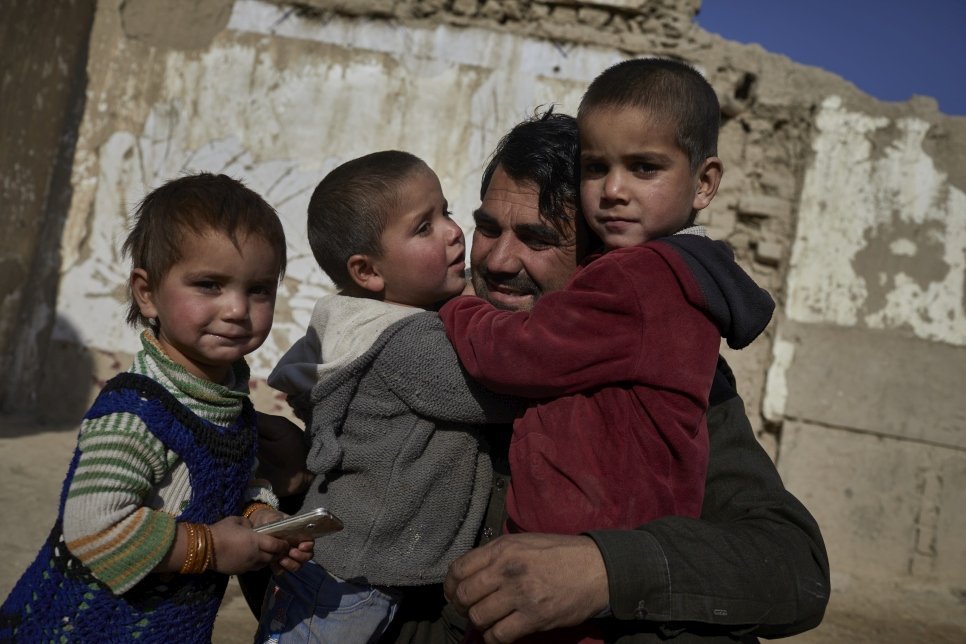Afghan refugees held for months in the United Arab Emirates (UAE) in prison-like conditions after fleeing Afghanistan following the hasty exit of US forces last August have continued protests over American failure to resettle them in the US as pledged.
The protest rallies by hundreds of Afghans who had assisted or collaborated with the US-led occupation forces during their 20-year invasion of the country continued on Friday, a day after a visiting US official notified the already frustrated asylum seekers that the processing of their application could take years to complete.
The official added that many of the asylum seekers would never be resettled in the United States, according to a protester.
Meanwhile, a US State Department spokesperson confirmed that “several” Afghans had taken part in peaceful protests and that US government officials had met with Afghans this week to discuss their concerns about the resettlement process.
The spokesperson claimed that US screening and vetting of vulnerable Afghans is continuing and that “safe and orderly” travel to the United States would be facilitated for those who qualify, without elaborating.
The protests come amid condemnation of what the Taliban government in Afghanistan described as “theft” a recent decision by the Biden administration to use billions of dollars of frozen Afghan assets to compensate the claimants of the September 11, 2001 attacks.
The White House announced on Friday that US President Joe Biden plans to block half of the $7-billion Afghan funds frozen in American banks to distribute among the families of the victims of the controversial 9/11 terrorist attacks on American soil.
Among the Afghan refugees held in the UAE, advocates say, are those who had served the US government and military forces during their 20-year effective rule in the war-torn nation.
One of the advocates said the asylum seekers planned to continue “peaceful protests” over negligent US processing of asylum applications in the UAE, insisting that “there is no transparency.”
Ahmad Mohibi, who served as former US counter-terrorism adviser in Afghanistan and has assisted those fleeing the South Asian country and maintains contact with several refugees in the UAE, said some Afghans had even asked to be repatriated to Afghanistan.
The refugees, he said, were appreciative of the care the UAE has provided them but were exasperated by the uncertainty over how much longer they would have to remain in what they say are prison-like conditions at the Abu Dhabi center, where most of them are being held.
The UAE – along with several other US-allied governments — agreed with Washington and other Western countries last year to “temporarily” house Afghan collaborators evacuated from Afghanistan as they made their way to a third country.
It is unclear, however, how many Afghan refugees are being housed in the UAE, though protesters and advocates estimate that there are 12,000 of them temporarily living at two locations in Abu Dhabi.
The Emirati government has not yet commented on the protests.
The development came amid reports last month that US immigration officials have also denied entry to hundreds of Afghans seeking a temporary stay in the country for humanitarian reasons, causing dismay of Afghans and their supporters.
y doing so, immigrant advocates insisted, the Biden administration has failed to honor its pledge to assist Afghans who were left behind after the US military’s pullout from the war-torn country.
Read More: Bahrain admits Israeli officer will be stationed in Persian Gulf state
The Afghan refugees living in Abu Dhabi started their demonstration on Wednesday. Some protesters have reportedly been arrested by UAE authorities.
Soon after the Taliban laid siege to Kabul, the US and its international partners raced to cut off Afghanistan’s access to international aid and froze roughly $10 billion in assets belonging to the country’s central bank.
The Taliban have warned Western diplomats that insisting on sanctions as a means to pressure their governance could undermine security and trigger a wave of economic refugees.













